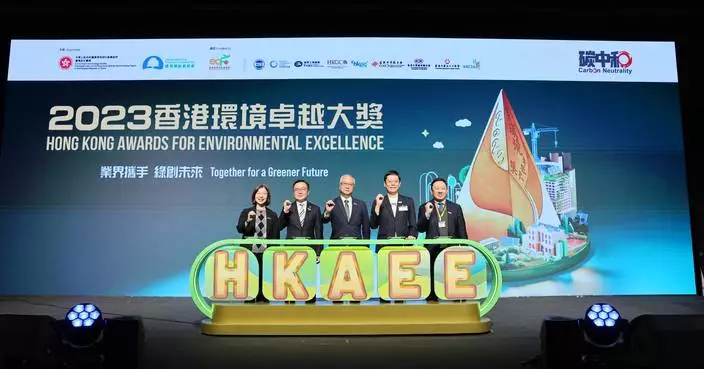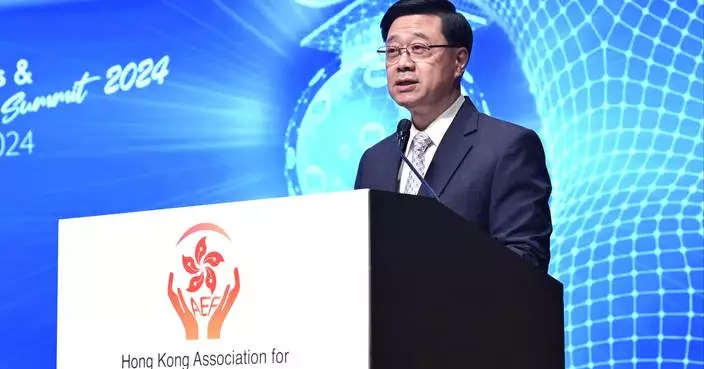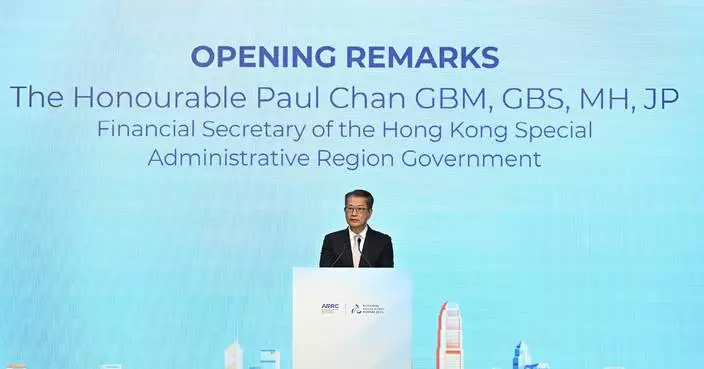DH announced latest situation of Legionnaires' Disease cases
The Centre for Health Protection (CHP) of the Department of Health today (December 2) reported the latest number of cases of Legionnaires' disease (LD), and appealed again to those who had participated in tour groups to Foshan organised by Travel Around Limited from November 7 to 17 to contact the CHP as soon as possible for health assessment and medical surveillance.
From November 24 to 30, the CHP recorded six community-acquired LD cases, and three imported cases associated with Travel Around Limited's tour groups to Foshan, which were announced earlier.
Details of the community-acquired LD cases are as follow:
A male patient, aged 68 with good past health, who lives in Islands District;
A female patient, aged 70 with underlying illnesses, who lives in Kwun Tong District;
A male patient, aged 67 with underlying illnesses, who lives in Eastern District;
A male patient, aged 71 with underlying illnesses, who lives in Wong Tai Sin District;
A male patient, aged 75 with underlying illnesses, who lives in Yau Tsim Mong District; and
A male patient, aged 52 with good past health, who lives in Kowloon City District.
In view of the recent spate of cases involving Travel Around Limited's tour groups to Foshan, the CHP continues to appeal to those who had participated in the Foshan tour groups organised by the aforesaid travel agent between November 7 and 17 to call the CHP hotline (2125 2372) for follow-up and medical surveillance. The hotline will continue to operate from 9am to 5pm until Friday (December 6). They should seek medical advice immediately if they develop symptoms of infection, such as fever or feeling unwell.
"Epidemiological investigations into the six community-acquired LD cases are ongoing to identify potential sources of infection, high-risk exposure and clusters, if any," a spokesman for the CHP said.
As of November 30, 124 LD cases had been recorded this year. In 2023 and 2022, there were 121 and 80 cases respectively.
"Men, people aged over 50, smokers, alcoholics and persons with weakened immunity are more susceptible to LD. Some situations may also increase the risk of infection, including poor maintenance of water systems; living in areas with old water systems, cooling towers or fountains; using electric water heaters, whirlpools and spas or hot water spring spas; and recent stays in hotels or vessels," the spokesman said.
Legionellae are found in various environmental settings and grow well in warm water (20 to 45 degrees Celsius). They can be found in aqueous environments such as water tanks, hot and cold water systems, cooling towers, whirlpools and spas, water fountains and home apparatus that support breathing. People may become infected when they breathe in contaminated droplets (aerosols) and mist generated by artificial water systems, or when handling garden soil, compost and potting mixes.
Immunocompromised persons should:
Use sterile or boiled water for drinking, tooth brushing and mouth rinsing;
Avoid using humidifiers, or other mist- or aerosol-generating devices; and
If using humidifiers, or other mist- or aerosol-generating devices, fill the water tank with only sterile or cooled freshly boiled water, and not water directly from the tap. Also, clean and maintain humidifiers/devices regularly according to manufacturers' instructions. Never leave stagnant water in a humidifier/device. Empty the water tank, wipe all surfaces dry, and change the water daily.
The public should observe the health advice below:
Observe personal hygiene;
Do not smoke and avoid alcohol consumption;
Strainers in water taps and shower heads should be inspected, cleaned, descaled and disinfected regularly or at a frequency recommended by the manufacturer;
If a fresh-water plumbing system is properly maintained, it is not necessary to install domestic water filters. Use of water filters is not encouraged as clogging occurs easily, which can promote growth of micro-organisms. In case water filters are used, the pore size should be 0.2 micrometres (µm) and the filter needs to be changed periodically according to the manufacturer's recommendations;
Drain and clean water tanks of buildings at least quarterly;
Drain or purge for at least one minute infrequently used water outlets (e.g. water taps, shower heads and hot water outlets) and stagnant points of the pipework weekly or before use;
Seek and follow doctors' professional advice regarding the use and maintenance of home respiratory devices and use only sterile water (not distilled or tap water) to clean and fill the reservoir. Clean and maintain the device regularly according to the manufacturer's instructions. After cleaning/disinfection, rinse the device with sterile water, cooled freshly boiled water or water filtered with 0.2 µm filters. Never leave stagnant water in the device. Empty the water tank, keep all surfaces dry, and change the water daily; and
When handling garden soil, compost and potting mixes:
Wear gloves and a face mask;
Water gardens and compost gently using low pressure;
Open composted potting mixes slowly and make sure the opening is directed away from the face;
Wet the soil to reduce dust when potting plants; and
Avoid working in poorly ventilated places such as enclosed greenhouses.
The public may visit the CHP'sLD page, theCode of Practice for Prevention of LDand theHousekeeping Guidelines for Cold and Hot Water Systems for Building Managementof the Prevention of LD Committee, and the CHP'srisk-based strategyfor prevention and control of LD.
Third-term Human Resources Planning Commission convenes fifth meeting
The Chief Secretary for Administration, Mr Chan Kwok-ki, today (December 2) chaired the fifth meeting of the third-term Human Resources Planning Commission.
"The Chief Executive's 2024 Policy Address" announced the reform of the Employees Retraining Board (ERB) to enhance its role and positioning by devising skills-based training programmes and strategies for the entire workforce to enhance the competitiveness of the local labour force through promoting continuous learning for all. At the meeting, the Chairman and Executive Director of the ERB briefed members on the review outcomes and recommendations. The reforms will be implemented in two phases. The ERB is now preparing to roll out the short-term measures in early 2025, including lifting the restriction on educational attainment of trainees, increasing the total number of annual training places by at least 15 000, strengthening collaboration with parties such as tertiary institutions and leading enterprises as well as enhancing services in career planning and job-matching. For the medium and long-term measures concerning the skills training framework, structure, operation mode, and consolidation of training resources, the ERB will submit proposals on the implementation details and timetable to the Government in end-2025. At the meeting, members offered their views to the ERB on its reform.
In addition, representatives of the Census and Statistics Department briefed members on the latest situation regarding Hong Kong's population and labour force, and the projected population outlook for the next two decades. The current term of Government has introduced various measures to encourage childbirth as well as policies to attract talent and import labour, which will provide important impetus for future population growth. In the face of an ageing population, the projected inflow of One-way Permit holders and outside talent would help replenish the younger population, alleviate pressures on labour supply, and slow down the pace of ageing. Regarding the future manpower needs, the Labour and Welfare Bureau has previously shared with members the major findings of the 2023 Manpower Projection. Members acknowledged the challenges of Hong Kong's population and workforce in the future and supported the Government to introduce various response measures.






